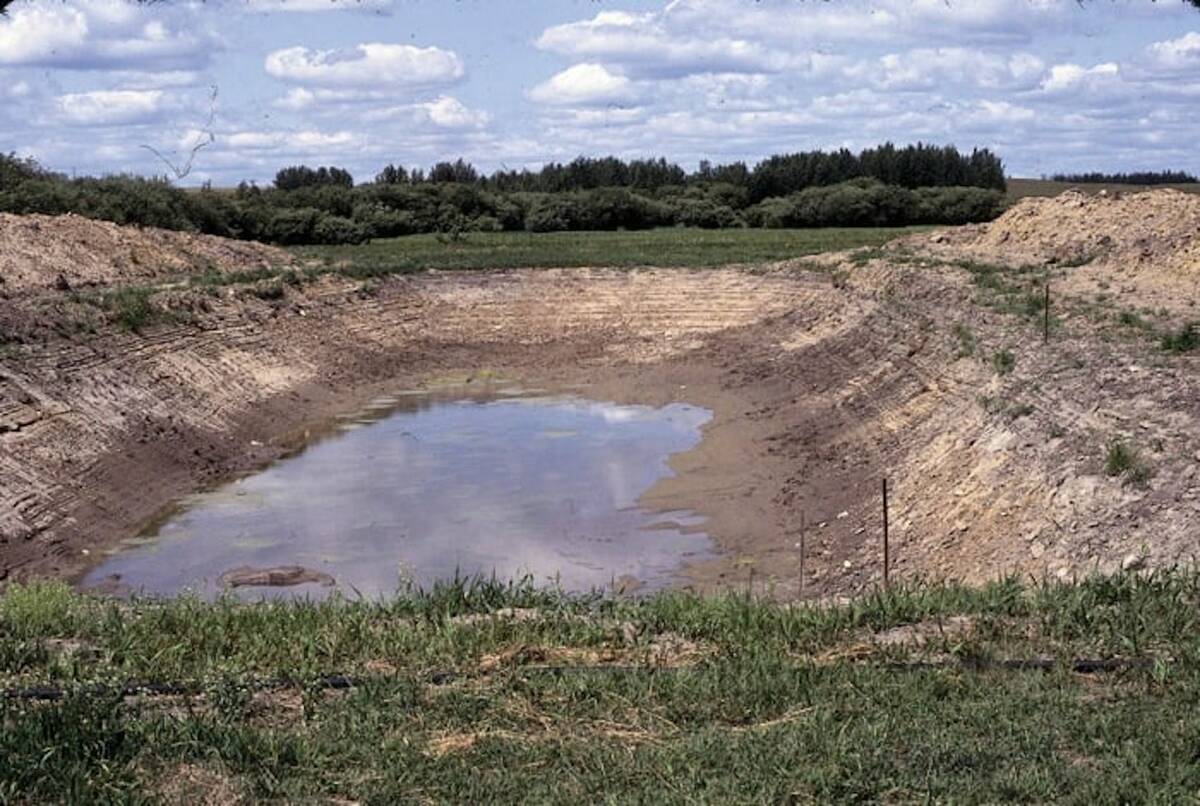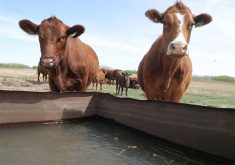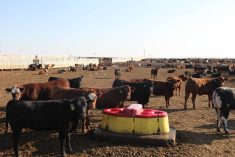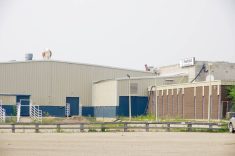The supply management system protecting the poultry and dairy industries should not be dismantled but its impacts on market access for other commodities like beef should be debated, speakers told the Alberta Beef Producers annual meeting in Calgary Dec. 5-7.
“We need a plan to move forward in the parts of supply management that impact our industry and frankly, that is the tariffs. I am not asking for the dismantling of it but as it impacts our industry I think we need to speak on it,” said ABP member and cattle feeder Stuart Thiessen.
Read Also

Dry summer conditions can lead to poor water quality for livestock
Drought conditions in the Prairies has led to an decrease in water quality, and producers are being advised to closely monitor water quality for their animals.
The subject was discussed over the course of two days in what was sometimes an emotional debate since Alberta Milk producers also send delegates to the beef organization.
Trade negotiations with the European Union and an application to join the Trans Pacific Partnership are at stake, Thiessen said.
“When Canada enters into trade negotiations we need to go as agile as we can and we are not that way in agriculture. We fail the hallmark of reciprocity,” he said.
A resolution was passed asking the provincial organization and the Canadian Cattlemen’s Association to approach the national supply managed commodities to discuss an acceptable trade position to present to the Canadian trade negotiating authority.
Kathleen Sullivan of the Canadian Agri-Food Trade Alliance said supply management policies are not always the barrier to free trade, but if one country wants open access, it must be willing to open its markets as well.
“Sometimes what stands in our way varies and depends on what market we are dealing with,” she said.
“In Korea, for example, the break down has been over the auto sector.”
The EU wants bigger things than access to the dairy or poultry market in its free trade agreement negotiations with Canada.
It is more interested in gaining the right to enter the investment community or bid on major government construction projects.
New Zealand indicated Canada was not given a seat on the TPP because of its supply management policies, but Sullivan said it was because the United States wanted to keep Canada and Mexico out since they are members of the North American Free Trade Agreement.
However, the U.S. recently said it would not block Canada’s application, which may not be accepted until late 2012.
For dairy producers Albert Kamps of Lacombe and Lorrie Jespersen of Barrhead, this is an issue of maintaining a friendly relationship with beef producers.
Alberta Milk has worked with beef producers on a number of issues like environmental regulations, land use controversies and animal welfare. When the $3 checkoff became refundable, Alberta Milk asked its members not to request a rebate as a show of support, said Kamps.
Jespersen said the beef industry has struggled in the years since BSE to regain markets but deals were made and Canada did not sacrifice supply management.
“Every country in the world has things it is protecting and there is no reason for Canada to be any different from any other country,” said Jespersen.
Some delegates said if supply management were to be changed or dismantled, dairy and poultry producers should be the ones to change it.
“We have our own issues to worry about here,” said Allan Minchau of Spring Coulee.
“I think the dairy industry and the feathers industry will have enough trouble defending their industry and their supply management practices from other aspects, not directly from their cousins in the agriculture industry,” he said.
Others said losing the quota system would not likely sell more beef.
“We need to open our eyes and look a bit broader and we should be ashamed of not looking at the bigger picture,” said Gordon Graves of Iron River.
Rural Canada is losing businesses and people as agriculture profits shrink and costs increase.
“One thing supply management has done in the areas where it is very strong is kept that rural community lively,” he said.

















